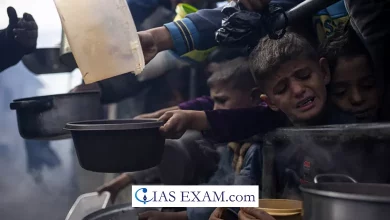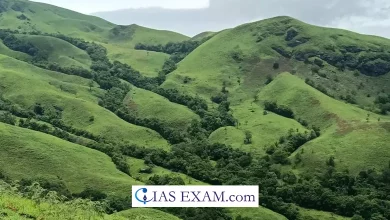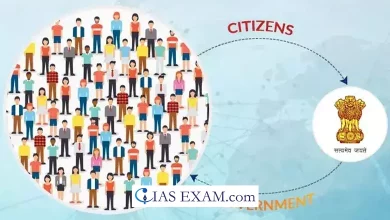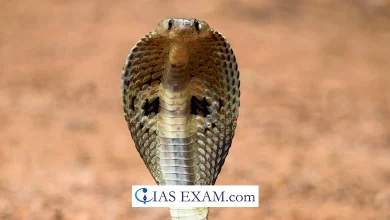Daily Current Affairs for UPSC
Power and Functions of CBI
Syllabus- Indian Polity and Governance [GS Paper-2]
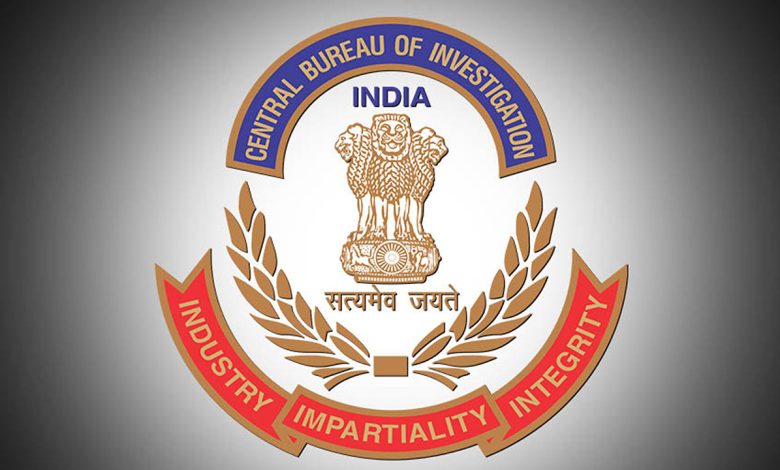
Context- Featuring withdrawal of general assent for CBI probe by many States, a Parliamentary Committee has said that a current regulation overseeing the government test organization has “numerous restrictions” and there is a need to institute another regulation to characterize its status, works and powers.
Key Highlights
- According to the Parliamentary Standing Committee on Personnel, Public Grievances, Law, and Justice, the DSPE Act requires the consent of the state government for any CBI investigation, and nine states have withdrawn their general consent.
- The Committee believes that the Delhi Special Police Establishment Act has many limitations and it recommends that there is a need to enact a new law and define the status, functions, and powers of the CBI, as well as lay down safeguards to ensure objectivity and impartiality in its functioning.
Observations
- The empty posts in the CBI are not being topped off at the necessary speed and suggested that “each work ought to be made to top off opening at the earliest”.
- In contrast to its authorized strength of 7,295, the CBI currently has a total of 1,709 vacant positions.
- Also vacancies in the cadres of executive ranks, law officers, and technical officers will without a doubt increase the pendency of cases, impede the quality of investigation, and ultimately impact the agency’s effectiveness and efficiency.
- The committee noticed that the CBI’s annual report is also unavailable to the public.
Suggestions of the panel
- The panel suggested that the Director of CBI keep a quarterly eye on progress in filling vacancies and take the necessary steps to make sure the organization has enough employees.
- It requested the CBI to make as much information as possible available to the public, stating that the details of cases registered with the agency, as well as the progress made in their investigation and the final outcome, are not publicly available.
- Also in this time of straightforwardness, each open authority ought to endeavor to proactively reveal the information accessible with it or held by it in open area to the degree conceivable.
- The CBI’s operation would be more accountable, responsible, efficient, and transparent if citizens were given access to information.
- As a result, the committee suggested that the CBI post annual reports and case statistics on its website.
- Additionally, the panel reiterated its recommendation that the CBI maintain a case management system, which would be a centralized database containing information about registered cases as well as the status of those cases.
- The case management system should also enable tracking of the progress of each individual case” and “should generally be accessible to the general public.”
Central Bureau of Investigation (CBI)
-
- India’s leading investigation agency is the Central Bureau of Investigation (CBI).
- Lokpal and the Central Vigilance Commission receive assistance from it.
- It operates under the direction of the Deptt. of Personnel, Ministry of Personnel, Pension, and Public Grievances, India’s Government – which is part of the prime minister’s office.
- However, the Central Vigilance Commission is in charge of conducting investigations into violations of the Prevention of Corruption Act.
- It is likewise the nodal police organization in India which arranges examinations for the benefit of Interpol Part nations.
- It is comparable to the best investigation agencies in the world in terms of its conviction rate, which ranges from 65 to 70 percent.
- Functions of the CBI
-
-
- The CBI is the GOI’s primary investigation agency. It’s anything but a legal body; The Delhi Special Police Establishment Act of 1946 is the source of its authority.
- It plays a crucial role in preventing corruption and maintaining administration integrity.
- In matters related to the Prevention of Corruption Act of 1988, it operates under the supervision of the CVC (Central Vigilance Commission).
- Cases involving violations of economic and fiscal laws, such as customs and central excise, export and import control, income tax, foreign exchange regulations, etc., should be investigated.
- However, cases of this kind are investigated by the CBI either at the request of the department in question or in conjunction with the department in question.
- Investigate serious crimes committed by professional criminals or organized gangs with national and international repercussions.
- Also to coordinate the efforts of various state anti-corruption agencies and police forces.
- Upon the orders of a state government, The CBI is also able to investigate any case of public importance.
- Keeping up with wrongdoing measurements and spreading criminal data.
- India’s point of contact for INTERPOL correspondence is the CBI.
-
- Issues with the CBI
-
-
- Because many of its investigators come from the Indian Police Service, the agency is reliant on the home ministry for staffing.
- The CBI also lacks some functional autonomy and relies on the ministry of law for lawyers.
- The CBI, run by IPS officials on assignment, is additionally defenseless against the public authority’s capacity to control the senior officials since they are subject to the Focal government for future postings.
- The CBI is a police agency because it follows the procedures outlined in the Code of Criminal Procedure (CrPC), which makes it a police agency.
- Therefore, the CBI needs the approval of the state government in question before it can establish itself in that state.
- This may result in a silent deadlock and certain cases not being investigated. Recently, states like Andhra Pradesh and West Bengal withdrew consent—and Andhra Pradesh gives consent again when the state government changes.
- Due to political pressure, the CBI, which investigates cases of national significance, has been criticized for its handling of several scams improperly.
- In addition, it has been criticized for interfering with the investigations of prominent politicians like Jayalalithaa, P. V. Narasimha Rao, Lalu Prasad Yadav, Mulayam Singh Yadav, and Mayawati; they are either found not guilty or are not charged.
- The Hawala scandal, the Bofors scandal, the 2G spectrum scam, the coal scam, and so on are just a few examples of misuses committed by the CBI.
-
- The ability to manage one’s own finances is essential to the success of any organization.





.png)
